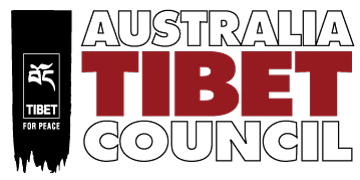Tibetan representatives give testimony to parliamentary inquiry
We express gratitude to members of parliament who are taking action to better understand and address the Chinese government’s persecution of Tibetans.

“I have left Tibet, but I continue to live in fear. If I speak out for my people inside Tibet, I’m afraid of the consequences on my family. If I do not speak out, I feel guilty of not using my democratic rights in a free country.”
Kyinzom Dhongdue, representing Australia Tibet Council, relayed these words from a fearful Tibetan community member to politicians at a public hearing as part of the parliamentary inquiry into issues facing diaspora communities. Kyinzom gave testimony along with President of the Australian Tibetan Community Association Kalsang Y Tipnak.
One of the key issues they raised was how agents of the Chinese government exert pressure and intimidate members of the Tibetan community in Australia, preventing them from speaking out for fear of repercussions for their family in Tibet or their ability to get a visa to visit relatives.
Kyinzom explained that, “After we find safety and freedom in this country, we also aspire to use these democratic rights and freedoms to advocate for people inside Tibet, but that is being denied to us, whether it is through direct intimidation or perceived fear because that has happened to many members of the Tibetan community.
For instance, as you know, many members of the Tibetan community every year come to Canberra to lobby and brief members of parliament, like yourselves, on the annual Tibet Lobby Day.
The Chinese government keeps an eye on the tourist activities of the Tibetan community in Australia, and a few years ago one of our lobby day participants got a call from the Chinese embassy in Canberra saying: ‘I can see that you are coming to Canberra to lobby, so be careful. Are you sure that you want to do this? I know you have family in Tibet.’ So basically they were intimidating the person to withdraw from the lobby day project.”
Kyinzom also gave the example of someone who was teaching at a Tibetan language school. When they went to the Chinese embassy to apply for a visa, they were interrogated and accused of being anti-China and pro-Tibet because of their work.
The issue of intimidation was among a number of topics addressed at the hearing, including reports of Tibetans being forced into labour camps and the lack of access to Tibet. On the subject of Tibetan labour camps, Kyinzom told the inquiry that, “To be denied your traditional way of life, your livelihood, which is a big part of your cultural identity, and being forced to go to these military style training camps and then go and work in factories is deeply insulting and detrimental to our culture and to our way of life.”
The Tibetan labour camps issue is one that we will be looking at more closely as we create our road map of 2021 campaigns. Read more in our blog.
Other concerns raised were barriers to Tibetan-Australians receiving pensions at the appropriate age, getting language accreditation and applying for grants.
Australia Tibet Council is encouraged by the political will to carry out a parliamentary inquiry of this nature. We will continue to meet with Australia’s political leaders to raise the profile of what’s happening both inside Tibet and as a result of the Chinese Communist Party’s (CCP) influence on Australian soil and appeal for them to call on the CCP to uphold international human rights laws and norms.
If you would like to read more, see the transcript of Kyinzom and Kalsang’s testimony as well as our original submission to the inquiry.
